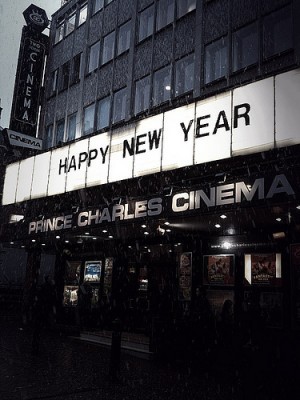You have no items in your cart. Want to get some nice things?
Go shopping
It’s been a funny old fortnight in Vauxhall. Last week, a helicopter was forced to divert from its intended route due to heavy fog. It hit a crane on top of Vauxhall Tower and crashed onto Wandsworth Road. The crane jib landed on an empty stretch of Nine Elms Lane, while burning debris rained down on commuters. Two days later it started to snow.
By Sunday it had fully lain. We hatched a plan to walk over to Burgess Park, or maybe into town to visit a museum, but got no further than the Persian café on Kennington Road. I ate a veggie breakfast and went to buy groceries. Because I do not pay enough attention to my clothes, I am always freezing in winter. Nor do my shoes have grip. Back home in the relative warmth, I sipped coffee from a flask and made plans for a Rambo-style mission to Leicester Square. I slid pathetically up to Kennington station, dressed in jeans and jumper as I always am, carrying a little green umbrella like a pissed-up Mary Poppins. Twice I lost my footing entirely, but carried on as if it was all just part of the fun.
Outside Leicester Square tube station tourists were tramping down Charing Cross Road as usual, and all the snow turned instantly to mush. I slid down Little Newport Street, where polite British-Chinese grandchildren held out umbrellas for their Chinese-Chinese grandparents, and middle-aged chefs hung about smoking in the backdoors of Hong Kong-style restaurants. Without stepping foot near a multiplex, I bought a ticket (and membership) at the Prince Charles, and headed downstairs with five or six others to the cinema’s near-perfect 285-seat auditorium.
I tend not to talk about films in this column, focussing instead on the theatres that house them, but the small turnout for McCullin was a real shame. I only hope the weather was responsible. The film is a portrait of former Observer and Sunday Times Magazine photographer Don McCullin. It plays out like a biopic: the now 77-year-old reporter tells us of his youth taking pictures of gangs (many of whom were his friends) near home in east London, then moves on to his experiences abroad: Cyprus, Berlin, Lebanon, Congo, Biafra, Vietnam and Cambodia. It is a thrilling and harrowing ride through the late 20th century, where the spotlight remains on photography, and the questions it raises: is it morally justifiable to take pictures of people in agony, destitute, malnourished and on the verge of death?
The film’s arrangement is humble and unfussy, as is McCullin himself. He offers no definitive answers. He admits he became a “war junkie” and sought new challenges on every occasion. Sometimes he took the picture, sometimes he did not. Sometimes he stopped to help civilians, sometimes he did not. The film is a platform for a much older art form: black and white still images. A medium which has been associated with warfare since Roger Fenton went to the Crimean War in 1855.
The straw that almost broke the camel’s back was the Lebanese Civil War. McCullin was asked to photograph a hospital for mentally ill children, who had been tied to their beds by fleeing staff, and left without food, or water, or sanitation. When asked by locals to take the picture of a naked, starving 16-year-old girl, McCullin insisted they cover her up. The girl sat upright and placed her hands on her waist. “None of us will ever have that kind of dignity,” he said.
Not that McCullin’s bewildered account makes it any less uncomfortable to see such madness. I frequently had to turn away from the screen out of disgust, out of shame. “I thought it was just going to be soldiers,” McCullin told Parkinson after Vietnam. “But the real victims are the poor. Those who don’t have the Mercedes Benz to get away; those without the information or the money who stay behind.” The film draws to a close when Murdoch takes over the Times and Andrew Neil is appointed editor. Serious reportage is no longer required, as it tends to discourage advertisers. McCullin is out of a job.
As I type this the snow has all but melted outside. I can see the Vauxhall Tower from my bedroom window: ugly, obtrusive, resilient. A newly erected crane is busily taking down the ruined one. Vauxhall is always noisy first thing on a morning, and I slept through the crash. The rest of the day was unusually quiet. What happened in Vauxhall was not a political crisis, but an accident. For those involved, of course, the event will always take the form of a question. Namely: why me? But today the roads and stations are working as if nothing ever happened. It is McCullin’s photographs that I cannot seem to shake.

About Philip Maughan
Philip Maughan was born in Middlesbrough in 1987. He currently works at the New Statesman and blogs at philipmaughan.tumblr.com.





For his latest piece @pjmaughan fought the snow to see an unforgettable documentary at the @ThePCCLondon Read here: https://t.co/mnIQ0chy …
New column for @LitroMagazine on the Vauxhall helicopter, the Prince Charles Cinema, Don McCullin and the snow: https://t.co/FRksQ326